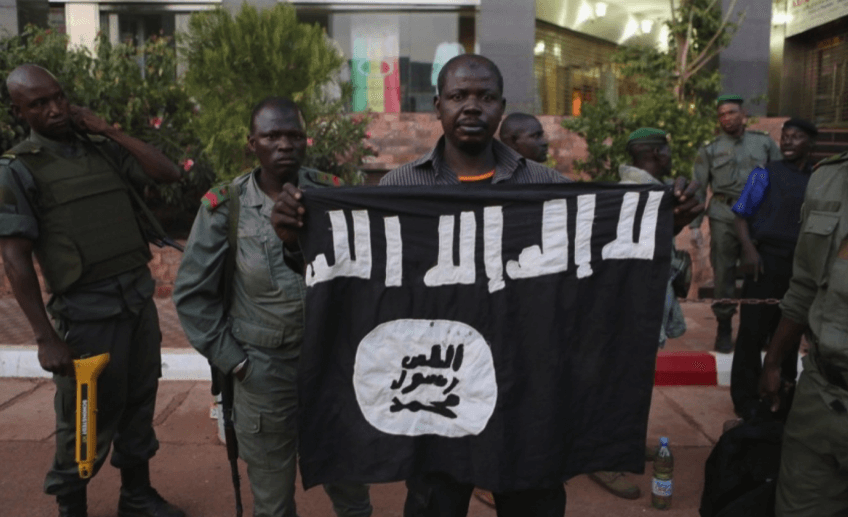
The threat from the Islamic State: why should West Africa care?
Bennett Kelley-Bell
First a disclaimer, I am not West African. I am a citizen of the US who has lived in Francophone West Africa and Latin America for large parts of my life. But I am not from the region. Everything I say here will be tinged with my viewpoint and my perspective.
The Islamic State in the Levant (ISIL, also known as ISIS or Daesh) and like-minded groups do not pose a serious threat to the American way of life. The San Bernardino attacks of December 2015, where a radicalized US citizen (Syed Rizwan Farook) and his foreign born wife (Tashfeen Malik) attacked a holiday party put on by Syed’s employer killing 20 of his co-workers. This shooting, while heinous, does not threaten the US Constitution, only a US overreaction does.
ISIL is not going to take over the state of Kansas. But ISIL poses a deep and serious threat to many countries in West Africa. In Nigeria the actions of an ISIL affiliated group, Boko Haram, have resulted in the deaths of over 7,000 people. While security analysts can argue about the level of cooperation between Boko Haram and ISIL, the fact remains that they are the world’s most deadly terrorist organization and they share the same ideology as ISIL.
Boko Haram controls large amounts of territory in northwestern Nigeria, and is active in Niger, Cameroon, and Chad. Boko Haram and similar groups thrive in border regions and in areas with weak governmental influence. It is only through a strong military response and effective coordination that some of Boko Haram’s recent gains have been rolled back. But Boko Haram is far from defeated.
ISIL affiliated groups have committed attacks in Tunisia and Egypt specifically targeting foreign tourists. Their goal is to scare tourists away, deliberately undermining large parts of the economy. While tourism isn’t a major factor in most West African economies, many of these nations are so cash strapped that any decrease in tourism can have a strong negative effect both at a national and individual level. If the hotel shuts down, what are the guards and cleaning staff going to do? How will they feed their families and provide for their children?
While not affiliated with ISIL, Ansar Dine, and The Movement for Oneness and Jihad in West Africa (MUJAO) took over large swaths of Mali in 2012. This led to a coup d’état, a large international operation to retake territory (Operation Serval which was replaced by Operation Barkhane at the regional level) and the most dangerous UN peacekeeping operation in terms of total deaths of peacekeepers. Apart from threatening the Malian State, these groups truly threatened the Malian way of life and Malian culture.
The citizens of Timbuktu had to change from their moderate Sufism to hardline Salafism virtually overnight. They watched as their mausoleums and their famed libraries were destroyed. They sat helplessly as hundreds of years of their cultural heritage and patrimony were erased overnight and did what they could to hide their books from the rampaging hordes.
Even now there are still high levels of violence in Mali as evidenced by the Radisson Blu attack in Bamako in November 2015. The same group also claimed the Ouagadougou attack in January 2016. These attacks were aimed at the expatriate and intelligentsia. The people who have options and the means can always leave West Africa. These attacks cause a change in the fabric of society.
ISIL and ideologically like-minded groups have taken over territory, kidnapped, enslaved, and killed their fellow countrymen. These organizations are threatening the economy, the state, and the very culture of West African nations.
I often pass the Radisson Blu in Dakar, Senegal, on my runs, and their security measures have definitely changed since the attacks. The President of Senegal Macky Sall has proposed banning the burka. While all nations and cultures have their own views on the freedom of religious expression nobody was talking about banning the burka five months ago.
That ISIL would seriously threaten the American way of life is a claim that is debatable at best. That is not the case in West Africa. ISIL and ideologically like-minded groups have taken over territory, kidnapped, enslaved, and killed their fellow countrymen. These organizations are threatening the economy, the state, and the very culture of West African nations. If they have their way, the lives of the citizens of West Africa will forever be altered for the worse. West Africans should care about ISIL because ISIL threatens everything that they hold dear and valuable.
Credits photo: http://www.independent.co.uk/voices/comment/mali-hotel-attack-another-miserable-day-in-a-bitter-war-without-frontiers-a6742726.html
Bennett Kelley-Bell is an M.S. student in International Affairs at the Georgia Institute of Technology. He is also an Officer in the United States Army Reserve. He is an intern at WATHI. The ideas and opinions expressed in this article are the author’s own and do not represent those of the United States Army or of the Department of Defense or WATHI.
